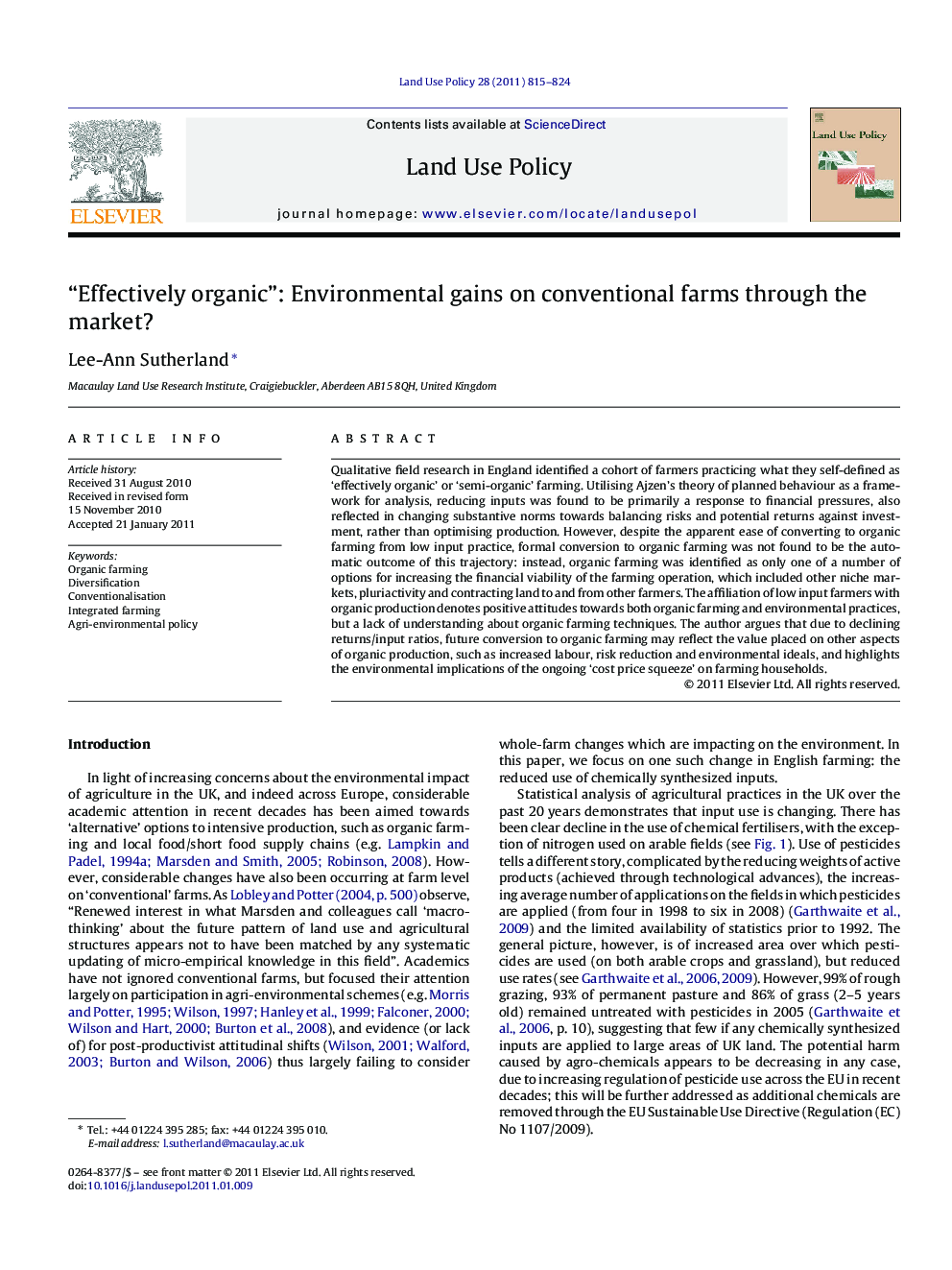| Article ID | Journal | Published Year | Pages | File Type |
|---|---|---|---|---|
| 93362 | Land Use Policy | 2011 | 10 Pages |
Qualitative field research in England identified a cohort of farmers practicing what they self-defined as ‘effectively organic’ or ‘semi-organic’ farming. Utilising Ajzen's theory of planned behaviour as a framework for analysis, reducing inputs was found to be primarily a response to financial pressures, also reflected in changing substantive norms towards balancing risks and potential returns against investment, rather than optimising production. However, despite the apparent ease of converting to organic farming from low input practice, formal conversion to organic farming was not found to be the automatic outcome of this trajectory: instead, organic farming was identified as only one of a number of options for increasing the financial viability of the farming operation, which included other niche markets, pluriactivity and contracting land to and from other farmers. The affiliation of low input farmers with organic production denotes positive attitudes towards both organic farming and environmental practices, but a lack of understanding about organic farming techniques. The author argues that due to declining returns/input ratios, future conversion to organic farming may reflect the value placed on other aspects of organic production, such as increased labour, risk reduction and environmental ideals, and highlights the environmental implications of the ongoing ‘cost price squeeze’ on farming households.
Research highlights► ‘Effectively organic’ farmers self-define on the basis of low input use. ► The term ‘effectively organic’ denotes limited knowledge of organic practices. ► Organic conversion is one of the many ‘diversification’ options for farmers. ► Reducing chemical input use has been driven by declining profit margins. ► Relative farm profitability is a key influence on farmer attitudes and norms.
